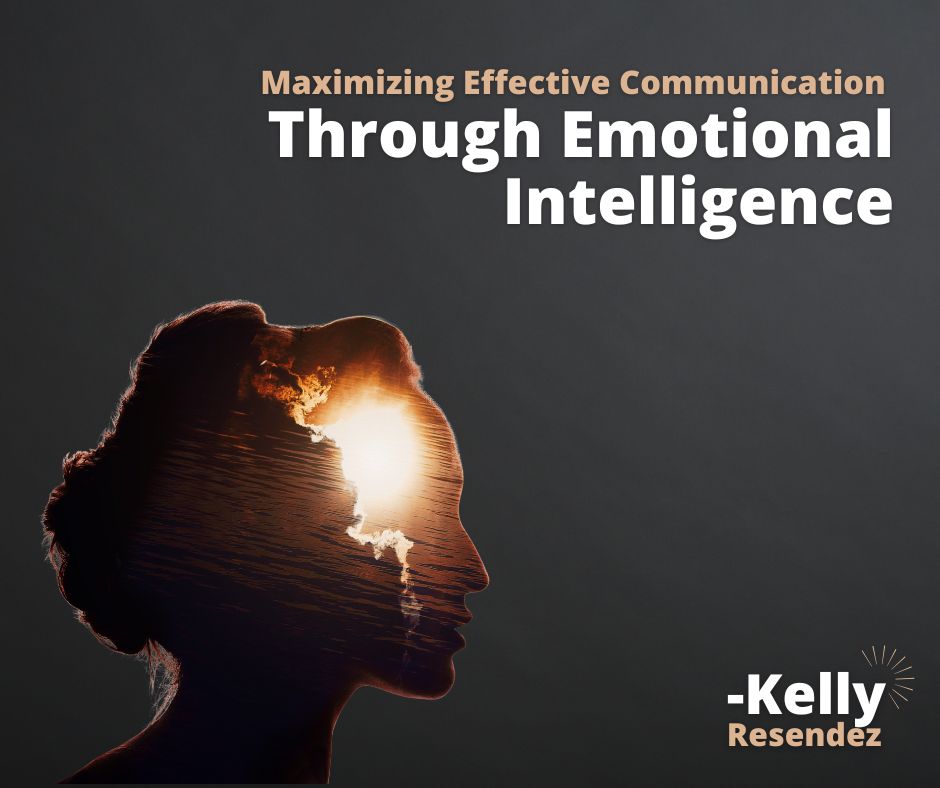
How to Build Boundaries Without Guilt: A Guide for Women Leaders
January 13, 2025
In today’s world, effective communication is the key to success in both personal and professional relationships.
However, to foster deep, meaningful, and productive communication, it takes more than focusing only on what we say. Instead, there’s more value in how we say it, how we listen, and even how we interpret the emotions behind others’ words.
Therefore, many communication experts are mapping a correlation between maximizing communication and high emotional intelligence, or EQ, as it’s commonly known.
So, what exactly is EQ?
The best explanation I’ve found comes from psychologist, author, and emotional intelligence expert Travis Bradberry, “Emotional intelligence is the ability to make emotions work for you, instead of against you.”
In fact, by some estimates, EQ dictates up to 60% of what we achieve in life and work! Yet, despite the potential for transformative power, EQ is still an overlooked tool.
The ability to recognize, understand, and manage emotions—both our own and especially those of others—can transform the way we communicate. Emotional management helps us stay truly present on the message and the messenger, build deeper connections, resolve conflicts, and foster trust.
On the contrary, you can also think of communication with those that have a low EQ as a bad connection with a lot of interference – like the fuzz we see on an old television set or a bad radio signal.
The Connection Between Emotional Intelligence and Communication
Emerging research in the field of communication and numerous studies around EQ show that strong emotional intelligence helps us:
- Improve Self-Awareness:
Understanding our own emotions allows us to communicate with clarity and intention rather than reacting impulsively. (Like getting angry, frustrated, etc.)
- Enhance Empathy:
By recognizing and validating the emotions of others, we create a space where people feel heard and understood. (Most everyday “communication” is really just waiting for our turn to talk!)
- Regulate Emotions:
Managing our emotional responses prevents misunderstandings and promotes constructive conversations. (Like jumping to conclusions based on our past experiences).
- Strengthen Relationships:
Emotionally intelligent individuals build trust and rapport more easily, leading to healthier, more productive interactions. (When someone knows you actually care and are on the same side of the table as them, the bond is immediate and strong!)
Just how positive can these results be? Studies show that top performers with high EQ can boost productivity by 36%, while leaders with high EQ can enhance team performance by up to 50%. That’s pretty incredible!
How to Apply Emotional Intelligence to Communication
1. Develop Active Listening Skills
Instead of formulating a response while someone is talking, practice truly listening. Pay attention to their words, tone, and body language. Reflect back what you hear to ensure understanding and show you value their perspective.
2. Pause Before Responding
Emotions can run high in conversations, especially in moments of disagreement or diverging motivations. So, before reacting, take a breath and assess your emotions. Ask yourself: Am I responding with clarity and kindness, or am I reacting from frustration or defensiveness?
3. Use Empathetic Language
Statements like “I understand how you feel” or “That must have been challenging for you” validate the other person’s emotions and show that you care, fostering connection and reducing tension.
Try this next time: even if you strongly disagree with someone, say “I hear you” or “Wow, you’re really passionate about this” after their speech. You’re not saying you agree but signaling acknowledgment and understanding. You’ll be amazed at how effective that is!
4. Be Mindful of Nonverbal Cues
Communication isn’t just verbal—our facial expressions, tone, and gestures convey just as much meaning. Being aware of these signals in yourself and others can help prevent misinterpretations.
Research by communication expert Albert Mehrabian’s suggests that in conveying feelings and attitudes, words account for only 7% of the message! Instead, tone of voice 38% and facial expressions 55% make up the lion’s share of what is conveyed and internalized.
5. Manage Conflict with Emotional Awareness
When conflict arises, approach it with curiosity rather than defensiveness. Acknowledge the emotions at play and work toward solutions rather than escalating the situation.
Try “zooming out” to a 10,000-foot perspective, or if you were speaking to the other person from 5 years in the future when you are less emotionally invested. Ask them to clarify their position instead of butting heads – just showing interest and not pushing back will open up the lines of mutual respect.
The Lasting Impact of Emotionally Intelligent Communication
When we incorporate emotional intelligence into our interactions, we cultivate deeper relationships, reduce stress, and create more positive outcomes in every aspect of life. Whether you’re navigating workplace dynamics, strengthening personal relationships, or resolving conflicts, emotional intelligence is the key to more meaningful, effective communication.
By practicing self-awareness, empathy, and emotional regulation, you can transform the way you communicate, making every conversation more intentional, impactful, and fulfilling. And it all starts with understanding and working to hone your emotional intelligence.



